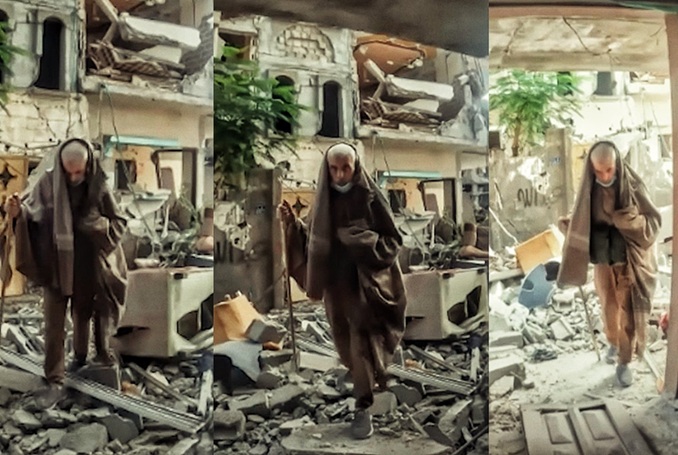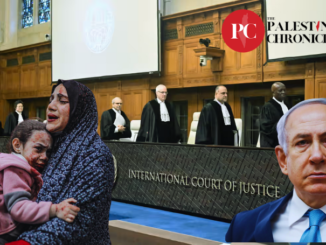
In a recent episode of Witness of the Era, a program on Al Jazeera Arabic channel, top Hamas political official Dr. Basem Naim revealed the years-long planning behind the Al-Aqsa Flood operation, highlighting the pivotal role of the late Yahya Sinwar.
Dr. Basem Naim, head of the Political Bureau of the Palestinian Resistance Movement Hamas, provided insight regarding the character and vision of the late head of the movement’s Political Bureau, Yahya Sinwar.
In the episode aired on March 1, 2025, Naim spoke about his first meeting with Sinwar, which took place after the latter’s release from prison in 2011 as part of the “Wafa al-Ahrar” prisoner exchange deal. He described Sinwar’s personal traits, noting that he was “a fierce fighter against the Israelis, yet kind and caring toward his comrades, always striving to maintain good relations with them.”
Sinwar, also known as ‘Abu Ibrahim’, was widely recognized for his broad knowledge and deep spirituality. He held a bachelor’s degree in Arabic literature and another in Hebrew literature. During his 22 years in prison, he devoted himself to reading and studying every book he could find, whether in Arabic or Hebrew, according to Naim.
He was also deeply committed to his personal religious practices, such as reading the Quran and engaging in dhikr (an Arabic reference to the ‘remembrance of God’-PC). Naim recalled hearing Sinwar say once, “The time for my devotions has come, and if I do not complete them tonight, I may not wake up tomorrow.”
On another note, Naim revealed that Sinwar viewed the governance exercised by Palestinians under occupation as an exceptional circumstance forced upon them by the Oslo Accords. He was keen on achieving reconciliation to free Hamas from the burdens of governance and focus on the ‘resistance project’. Additionally, he sought a complete separation between Hamas’s political project and the project of governance.
Sinwar believed that governmental work should become one of the files handled by the movement’s Political Bureau, not its primary focus, as Naim explained. He added that Hamas handed over the government in 2014 to focus on the resistance project, but this effort failed because “a national unity government did not materialize in the Gaza Strip.”
View of Other Groups
Sinwar was also known for his extraordinary ability to respect others, even those with whom he disagreed politically or socially, according to the Hamas official.
Naim recounted in his testimony that Sinwar praised the Popular Front for the Liberation of Palestine (a Marxist group-PC) and once expressed a wish that its members could join Hamas’s ranks. He also always spoke highly of the Islamic Jihad movement, considering it one of the most committed partners to the idea of armed resistance.
Sinwar famously said, “I urge you, both in life and after my death, to absolutely avoid any clash with our brothers in the Islamic Jihad movement,” Naim recalled.
Sinwar’s vision was reflected in the ‘joint operations room’ of Palestinian resistance factions during the 2021 “Sword of Jerusalem” battle and the “Great March of Return” between 2018 and 2019, where he emphasized national unity and appreciation for others, the official revealed.
Dealing with Conflicts
Regarding Sinwar’s view of the Palestinian Authority, Naim explained that Sinwar saw Fatah as “an authentic national movement that cannot be erased or its history negated.” Since the PA is essentially Fatah, Sinwar believed in neutralizing the conflict with the PLO’s largest political group. He argued that striking the Israeli occupation would weaken the anti-Hamas factions within Fatah.
Sinwar believed that the primary battle was preparing for the decisive confrontation (understood to be Al-Aqsa Flood Operations-PC), and any media or political distractions would only serve the Israeli occupation, the sole beneficiary of division and discord among the Palestinian people.
According to Naim, who served as Minister of Health in the government of the late Ismail Haniyeh, “Planning for Al-Aqsa Flood took many years. For example, the 600 tunnels dug took nearly 20 years to complete.” He emphasized that Sinwar played the most prominent role in the final stages of the Al-Aqsa Flood Operation on October 7, 2023.
In line with Sinwar’s vision, Hamas maintained a ‘unique and exceptional’ relationship with the two Fatah factions in Gaza: the faction previously represented by Mohammed Dahlan and the faction aligned with the PA in Ramallah. Despite deep and fundamental disagreements over vision and the future, Sinwar focused on neutralizing points of tension with other Palestinian factions, Naim said.
(Al-Jazeera Arabic website – translated and edited by the Palestine Chronicle)









Be the first to comment